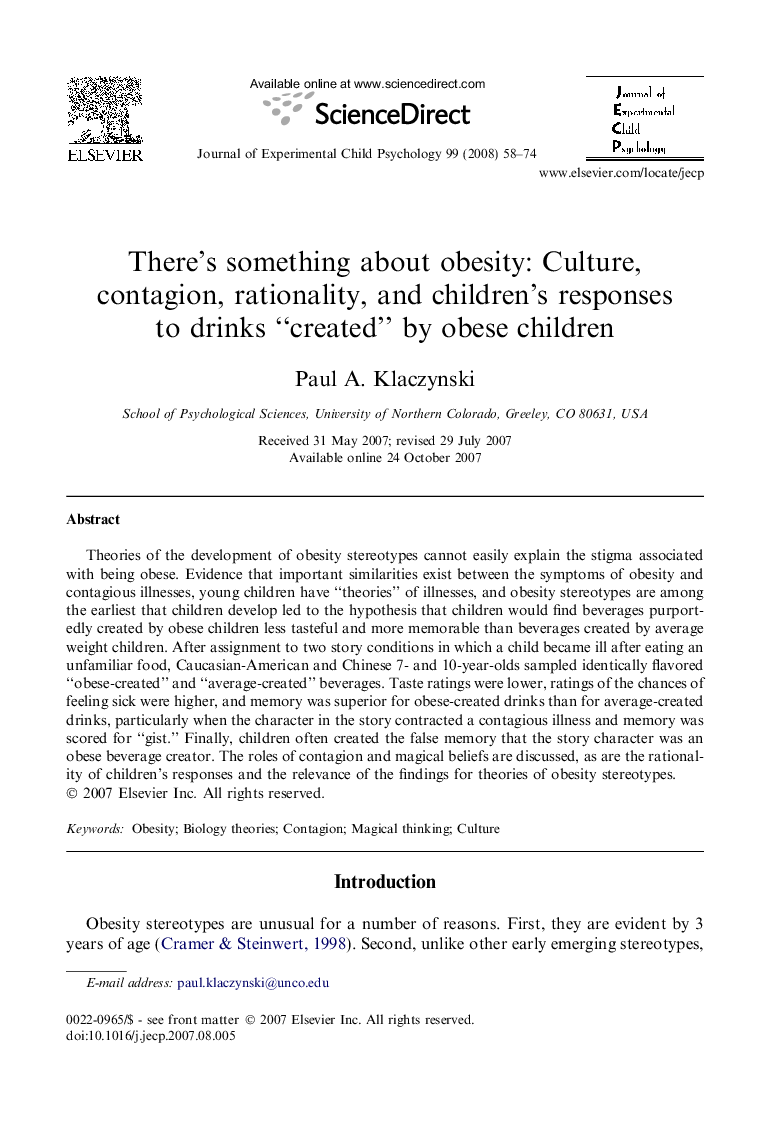| Article ID | Journal | Published Year | Pages | File Type |
|---|---|---|---|---|
| 918796 | Journal of Experimental Child Psychology | 2008 | 17 Pages |
Theories of the development of obesity stereotypes cannot easily explain the stigma associated with being obese. Evidence that important similarities exist between the symptoms of obesity and contagious illnesses, young children have “theories” of illnesses, and obesity stereotypes are among the earliest that children develop led to the hypothesis that children would find beverages purportedly created by obese children less tasteful and more memorable than beverages created by average weight children. After assignment to two story conditions in which a child became ill after eating an unfamiliar food, Caucasian-American and Chinese 7- and 10-year-olds sampled identically flavored “obese-created” and “average-created” beverages. Taste ratings were lower, ratings of the chances of feeling sick were higher, and memory was superior for obese-created drinks than for average-created drinks, particularly when the character in the story contracted a contagious illness and memory was scored for “gist.” Finally, children often created the false memory that the story character was an obese beverage creator. The roles of contagion and magical beliefs are discussed, as are the rationality of children’s responses and the relevance of the findings for theories of obesity stereotypes.
